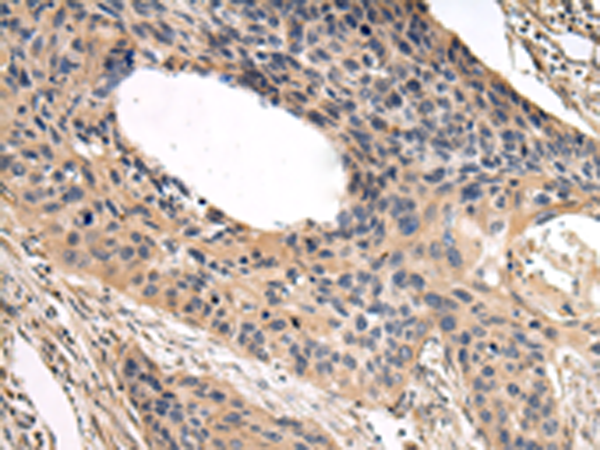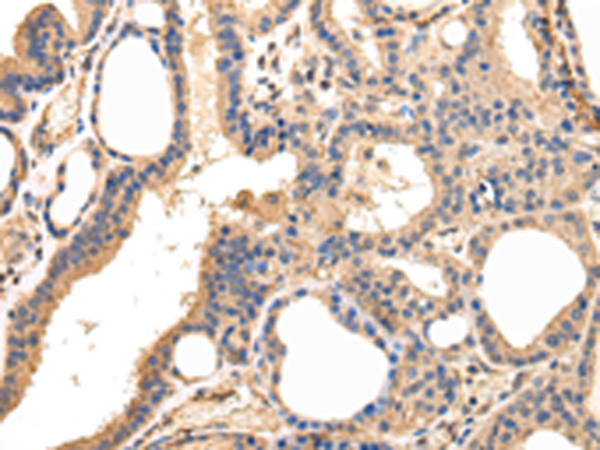

| WB | 咨询技术 | Human,Mouse,Rat |
| IF | 咨询技术 | Human,Mouse,Rat |
| IHC | 1/25-1/100 | Human,Mouse,Rat |
| ICC | 技术咨询 | Human,Mouse,Rat |
| FCM | 咨询技术 | Human,Mouse,Rat |
| Elisa | 1/2000-1/5000 | Human,Mouse,Rat |
| Aliases | UNPH4; UNPH-2 |
| Host/Isotype | Rabbit IgG |
| Antibody Type | Primary antibody |
| Storage | Store at 4°C short term. Aliquot and store at -20°C long term. Avoid freeze/thaw cycles. |
| Species Reactivity | Human, Mouse, Rat |
| Immunogen | Fusion protein of human USP15 |
| Formulation | Purified antibody in PBS with 0.05% sodium azide and 50% glycerol. |
+ +
以下是3-4篇关于USP15抗体的参考文献及其摘要概括:
---
1. **文献名称**:*USP15 regulates TGF-β signaling by deubiquitinating the receptor ALK5*
**作者**:Eichhorn PJ et al.
**摘要**:本研究揭示了USP15通过去泛素化TGF-β受体ALK5调控信号通路的机制。作者利用特异性USP15抗体(兔多克隆)进行免疫共沉淀实验,证明USP15与ALK5相互作用,抑制其泛素化降解,从而增强TGF-β信号传导及肿瘤转移潜能。
---
2. **文献名称**:*Ubiquitin-specific protease 15 maintains tumor cell resistance to proteasome inhibitors via NF-κB signaling*
**作者**:Xu D et al.
**摘要**:文章报道USP15通过稳定NF-κB通路关键蛋白(如IκBα)抵抗蛋白酶体抑制剂治疗。作者使用小鼠单克隆USP15抗体进行免疫印迹和免疫荧光,发现USP15高表达与多发性骨髓瘤患者预后不良相关,提示其作为治疗靶点的潜力。
---
3. **文献名称**:*USP15 antagonizes Parkin-mediated mitochondrial ubiquitination and mitophagy*
**作者**:Cornelissen T et al.
**摘要**:研究显示USP15通过去泛素化线粒体蛋白抑制Parkin介导的线粒体自噬。作者采用人源USP15抗体进行组织切片染色,发现帕金森病患者脑组织中USP15表达异常升高,可能通过干扰线粒体质量控制加剧神经退行性病变。
---
4. **文献名称**:*USP15 stabilizes the mRNA deadenylase complex in DNA damage response*
**作者**:Zhang L et al.
**摘要**:本文阐明USP15通过去泛素化mRNA脱腺苷酶复合物(CNOT7/8)调控DNA损伤应答。实验中使用兔抗USP15抗体进行ChIP-seq分析,证实USP15缺失导致DNA修复相关基因mRNA稳定性下降,影响细胞存活。
---
**备注**:以上文献均涉及USP15抗体的实验应用(如Western blot、免疫沉淀、染色等),并验证了其在特定通路中的功能机制。建议根据研究领域(如癌症、神经疾病或信号通路)进一步筛选。
×